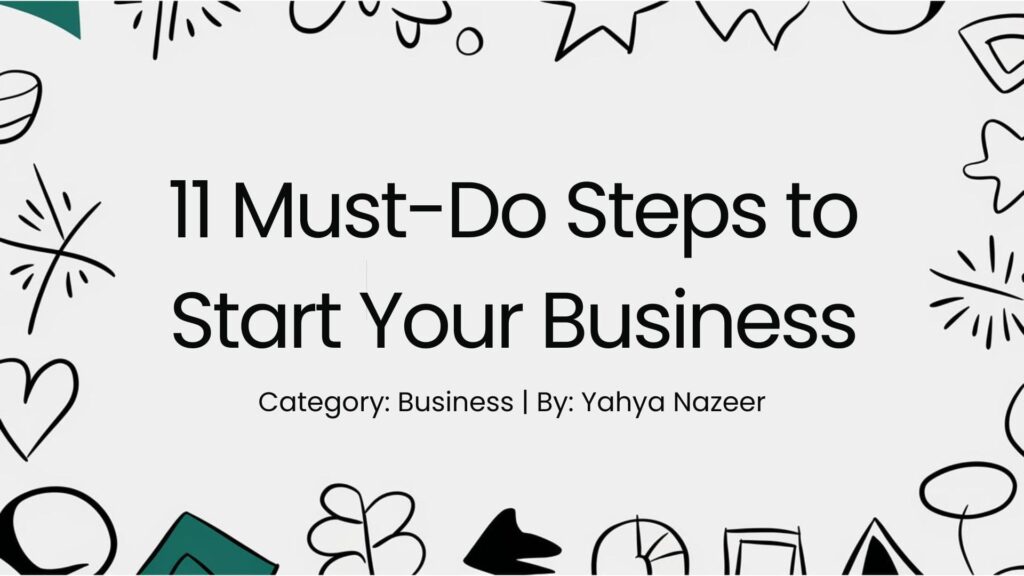Hiring freelancers can help make your business a lot more automated and overall efficient, because you get access to specialized skills, flexibility, and often a faster turnaround time.
But hiring the wrong, bad freelancer can lead to delays, unnecessary costs, and frustration, and now to avoid that, it’s important to ask the right questions upfront.
You want to make sure the freelancer is not only qualified but also a good fit for your project, so here are my favorite 10 questions to ask to help you find the perfect freelancer.
Questions To Ask Before Hiring Freelancers
1. What Is Your Policy on Intellectual Property?
Whenever you hire a freelancer for creating content, designs, or software, it’s important to clear that who will own the intellectual property (IP) once the project is completed.
Some freelancers retain ownership until the full payment is made, while others may require a contract outlining the transfer of IP rights, so make sure you know where they stand on this.
2. How Do You Manage Feedback and Revisions in Tight Deadlines?
Tight deadlines are very very common in many freelance projects, so always ask the freelancer how they manage feedback and revisions when time is limited. Do they have a clear process for making changes quickly? Are they comfortable working under pressure?
Their response can give you confidence in their ability to adapt and meet deadlines without compromising quality, which is crucial for projects where time is of the essence and multiple rounds of feedback are inevitable.
3. What Are Your Long-Term Availability and Plans?
If you’re hoping to work with this freelancer on an a long-term basis, then it’s obviously important to know their long-term availability, like are they planning to stay freelancing, or are they looking to move to full-time employment? Are they planning any long-term breaks, like vacations or sabbaticals etc.?
Knowing and fully understanding their future availability helps you plan for the long term, especially if you’re looking to build a lasting relationship with them.
4. How Do You Handle Feedback You Don’t Agree With?
Disagreements quite frequently happens, even with the best freelancers, and they way they handle feedback can say a lot about their professionalism, so ask how they respond when clients give feedback that contradicts their creative or technical decisions.
You want a freelancer who can strike a balance between standing by their expertise and remaining open to client input, because flexibility and clear communication are key in this scenario.
5. How Do You Handle Confidentiality?
In some cases, your project may involve some sensitive information, this information can be proprietary data, customer lists, or internal business processes, you need to know how the freelancer handles confidentiality.
Do they sign a non-disclosure agreement (NDA)? How do they store and manage your information? Trust is key in any freelance relationship, and being clear on confidentiality can help make that trust early on.
Related: 10 Reasons Why I Think a Mentor is Essential for Your Business Success!
6. How Do You Handle Revisions?
Even the best freelancers sometimes need to make changes after delivering work, so always ask how they handle revisions. Are revisions included in the initial cost, or do they come with an additional fee? Know this upfront, it will help you budget accordingly.
It’s normal for projects to evolve, and you want a freelancer who is flexible and willing to make adjustments as needed.
7. Can You Provide References or Case Studies?
A solid freelancer should have references or case studies to back up their work, so don’t be afraid to ask for them. Case studies can give you insight into how the freelancer approaches projects, their process, and the outcomes, and references, on the other hand, provide social proof that they’ve successfully completed work for other clients.
If a freelancer can’t provide references, it might be a red flag, because in my opinion trust is essential in a freelance relationship, and these materials can help build it.
8. What’s Your Relevant Experience?
This is probably the most obvious question, but it’s important. You need to know if the freelancer has experience in the specific area you need help with, like if you’re hiring someone to design a website, ask if they’ve built similar sites before.
Look for examples or portfolio pieces that align with what you’re looking for. Their past experience will give you a sense of their capabilities, I know that experience is key, but relevant experience is even better. Make sure their skills align closely with your project needs.
9. How Do You Prioritize Multiple Projects?
Freelancers quite often juggle multiple clients and deadlines at once, so try asking them how they prioritize their work when managing several projects simultaneously. Do they use a specific method, such as time-blocking or task prioritization, to ensure deadlines are met without sacrificing quality?
Understanding their process will help you gauge how well they can manage your project alongside other commitments, ensuring they stay organized and deliver on time.
10. How Do You Ensure Quality Control in Your Work?
Freelancers are often responsible for their own quality control, so it’s important to know what measures they take to maintain their high standards. Do they have a process for reviewing their work before submitting it? How do they ensure accuracy and attention to detail?
A freelancer who has a clear process for quality control is more likely to deliver polished, error-free work that meets your expectations.
Related: 7 Smart Budgeting Tips to Help New Businesses Cut Costs!
Conclusion
In my opinion, by asking these 10 questions, you’ll get a clear picture of the freelancer’s skills, work ethic, and communication style, and this will help you make a “well-informed” decision, making sure your project is completed on time and to your satisfaction.
Freelancers can bring a lot of value to your business because they’re not a permanent hire, but only if they’re the right fit. Take the time to choose them carefully, and you’ll build strong, productive relationships that benefit both sides.



Pingback: 10 Quick Ways to Increase Your Online Presence – Start Today!